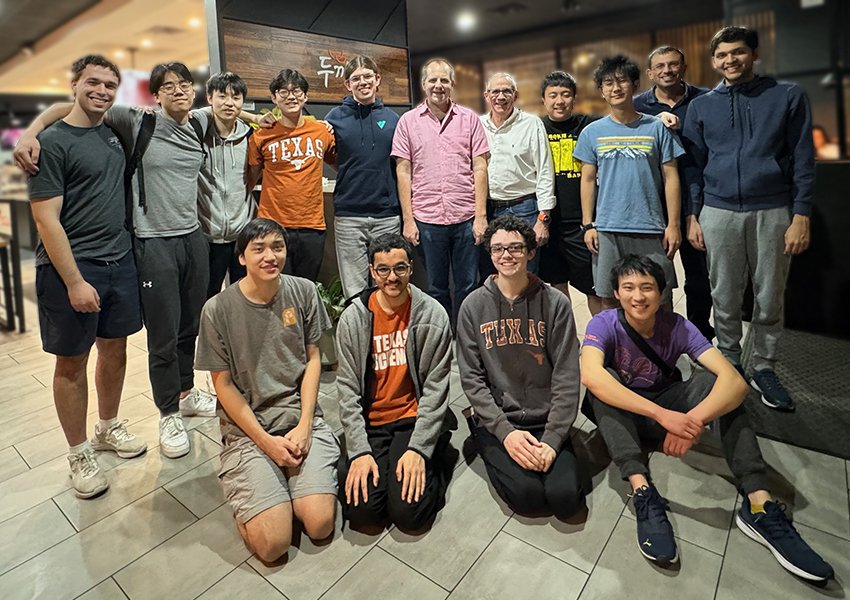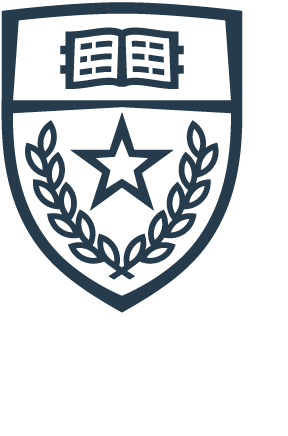Submitted by Anonymous on

On Sat, February 24, 2024, the UT Programming Team competed in the ICPC South Central USA Regional Competition. As a result, one team will advance to the ICPC North America Championship on Monday, May 27, 2024.
The competition consisted of 33 teams from Louisiana, Oklahoma, and Texas. UT Austin's top team came in 2nd (Aaryan Prakash, Caleb Hu, Mark Wen), solving 11 of the 13 problems. All four of our teams finished in the top eight! View full results.
UT has been competing in the regionals since 1997. UT went to the 2016-17 World Finals in South Dakota, the 2017-18 World Finals in Beijing, the 2018-19 World Finals in Portugal, and the 2019-20 World Finals in Moscow. This April, our 2021-22 team will compete in the World Finals in Luxor, Egypt. UT has seen marked improvement since creating a new elective, CS104c: Competitive Programming in 2014, taught by the faculty coaches Etienne Vouga and Glenn Downing and the student officers of the UT Programming Contest.
The ICPC traced its roots to 1970 when pioneers of the Alpha Chapter of the UPE Computer Science Honor Society hosted the first competition. The initiative spread quickly within the United States and Canada as an innovative program to increase students' ambition, problem-solving aptitude, and opportunities in computing.
Over time, the contest evolved into a multi-tier competition, with the first championship round conducted in 1977. Since then, the tournament has expanded into a worldwide collaboration of universities hosting regional competitions that advance teams to the annual global championship, the ICPC World Finals.
The International Collegiate Programming Contest (ICPC) is the premier global programming competition conducted by and for the world's universities. The ICPC is part of the ICPC Foundation.
The contest fosters creativity, teamwork, and innovation in building new software programs and enables students to test their ability to perform under pressure. The tournament has raised the aspirations and performance of generations of the world's problem solvers in the computing sciences and engineering.
News categories:







